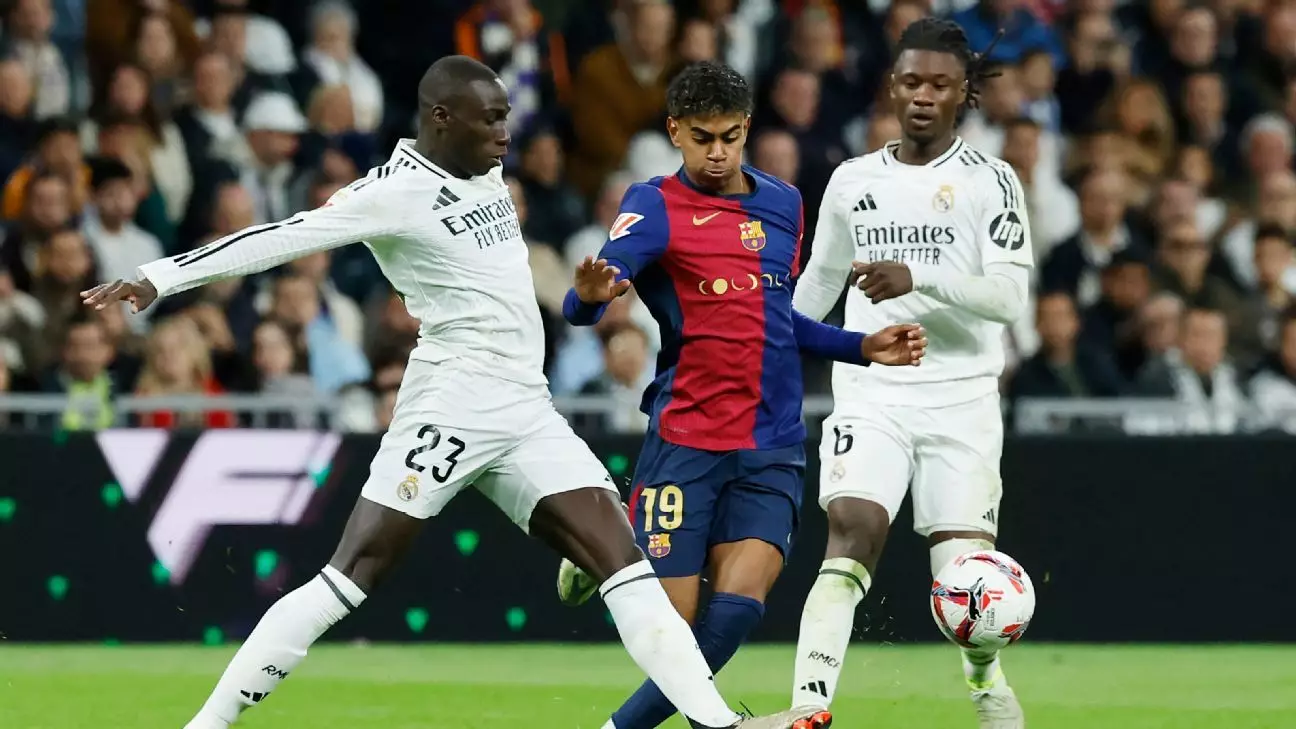Recent events in Spanish football have highlighted an unsettling reality: racism continues to mar the beautiful game. The arrest of three individuals following racist insults directed at twoBarcelona players, Lamine Yamal and Raphinha, during the recent Clásico match against Real Madrid is a stark reminder of the pervasive issue within sports culture. This incident, which occurred during a high-profile match that ended in a decisive 4-0 victory for Barcelona, explicitly underscores the need for serious action against hate speech in athletic venues.
The police confirmed that these arrests were made in response to xenophobic remarks which not only undermined the dignity of the players involved but also reflected a broader societal problem. Racism, unfortunately, is not an isolated event within football; it is part of a recurring pattern that necessitates an unwavering response from both authorities and the footballing community.
LaLiga has been proactive in addressing the uproar surrounding racist incidents in football, particularly those concerning Vinícius Júnior, a notable target of racism in Spain. The league took initiative by filing a complaint with the police, which included tangible evidence such as video recordings and analyses from lip-reading experts. This action sets a precedent, signifying that football authorities are no longer willing to tolerate racism within their ranks.
The response of LaLiga is crucial not only in penalizing offenders but also in fostering a culture of accountability. The recent arrests can serve as a deterrent, indicating that such behavior will have consequences. LaLiga president Javier Tebas has been vocal about the need for stringent penalties, advocating for prison sentences for fans engaging in racial abuse during games. This unequivocal stance is pivotal to galvanizing change in football, as it demonstrates a commitment to actively combat all forms of discrimination.
The emotional toll of racism extends beyond the confines of a sporting event; it resonates deeply on a personal level. Vinícius Júnior’s recent statements regarding his own experiences of racism underscore the long-lasting effects such abuse can have. He expressed his anguish about enduring frequent humiliation since he arrived in Spain, but he also noted a ray of hope in recent developments regarding accountability and the identification of perpetrators.
Moreover, Yamal is not new to this distressing reality; he has faced racially charged behavior before. As a young talent who made his debut at just 15, being targeted for his ethnicity adds an undesired burden on his burgeoning career. Players like Yamal and Vinícius exemplify the increasing pressures that young athletes face, not only to perform but also to withstand the ugly face of discrimination that can overshadow their achievements on the pitch.
The ramifications of racism in football extend well beyond the boundaries of the pitch. These incidents reflect a larger societal illness that requires a collective response from all sectors of society. Engaging fans through educational initiatives, awareness campaigns, and clear consequences for racist behavior at sporting events is crucial to fostering a more inclusive environment.
The collaboration between football clubs, authorities, and even local communities can create a powerful movement against racism. By offering workshops centered around tolerance and inclusivity, and implementing strict regulations to identify and punish violators, a more respectful culture around sports can begin to take root.
The concerted effort to eradicate racism from football must involve everyone—players, fans, clubs, and governing bodies alike. The recent arrests in Spain are a critical step forward, yet they should be viewed as the beginning of a much-needed continuous fight against racial abuse in sports. Encouraging dialogue about racism, and advocating for equality and respect, must become integral to the fabric of football culture. As voices calling for change grow louder, it becomes imperative that the sporting world responds with unwavering resolve to create a future devoid of such hateful incidents.
